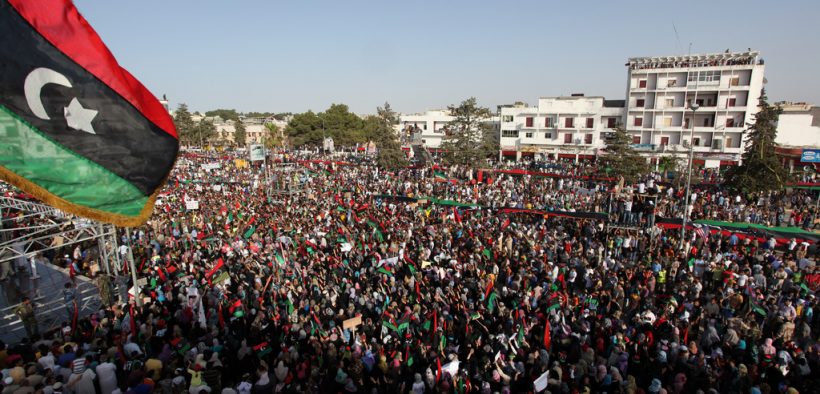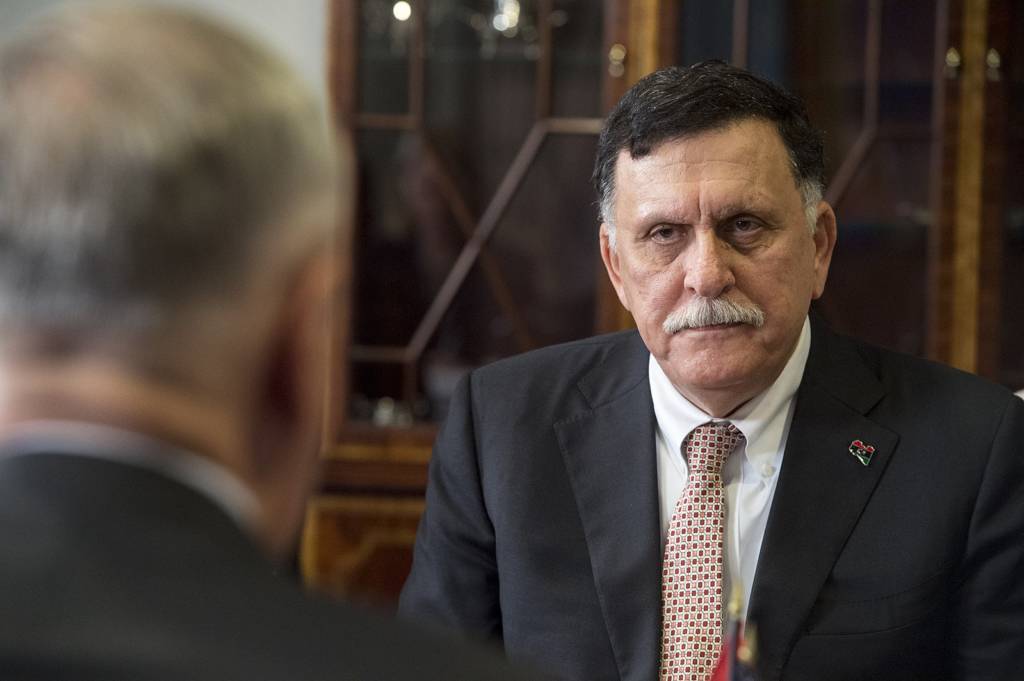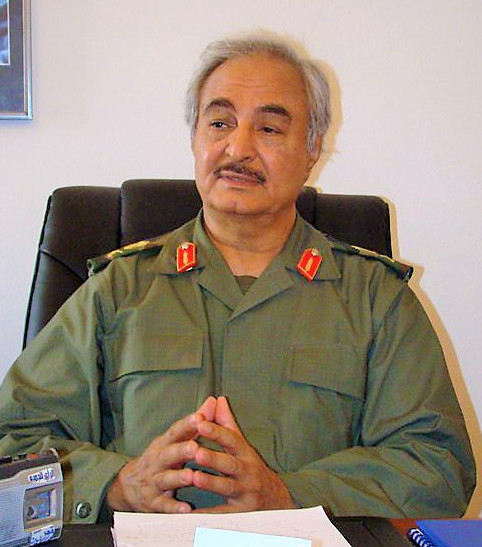Diplomatic Failure – Libya’s Tentative Peace Falters as Haftar Rejects Russian Ceasefire

Promising signs that the Libyan civil war was approaching an end on Monday gave way to news on Tuesday that General Haftar walked away from a Russian-brokered ceasefire.
Only a day after Russia’s foreign minister signaled that Libya’s warring parties were about to settle their long-standing differences, and thus end years of violence, institutional chaos and instability, reports have confirmed that Libyan General Khalifa Haftar left Moscow without signing the proposed ceasefire agreement.
For all the political goodwill Russian President Vladimir Putin spent on bringing both Gen. Haftar and Fayez Al Sarraj, peace talks ended in complete failure, leaving millions in Libya to brace themselves for what is likely to translate on the ground as military retribution.
Since the ouster of Libya’s former strongman Muammar Gaddafi in 2011, Libya has descended into an institutional black hole, marred by military violence and a complete socio-political meltdown. Held down under Gaddafi’s unforgiving rule, Libya’s tribes and political factions are now competing for power, each faction seating under the patronage of various foreign powers, each the reflection of a particular political ideology and/or hegemonic will.
Often discarded by mainstream media, Libya is now fast becoming the talk of the town – yet another proxy for competing regional powers, and, maybe more to the point, competing ideologies. In truth, Libya could soon become the epicenter of a dangerous military escalation, one which, if left unattended, could become a new convenient breeding ground for Islamic radicals, right on Europe’s doorstep.
Speaking to the press on Tuesday, Turkish President Erdogan, who earlier this month committed troops to shore up Al Sarraj’s positions (Al Sarraj is the Libyan Prime Minister of its Government of National Accord or GNA) against Gen. Haftar, warned that he would “teach a lesson” to the general should he resume his military adventures against Libya’s U.N.-backed government.
In direct opposition to the UAE, Saudi Arabia and Egypt who favor General Haftar, Turkey and Qatar have both made it clear that they would throw the weight of both their military to assert Al Sarraj’s position.
The GNA has signed agreements with Ankara assigning Turkey rights over a vast area of the eastern Mediterranean, a deal which has been denounced by France, Greece, Egypt and Cyprus.
Needless to say that Libya’s crisis stands to reverberate across the region by way of a souring of relations between all aforementioned nations – especially if one keeps in mind the many political upsets which, since the 2011 Arab Spring, have poisoned the Middle Eastern well.
Libya’s Crisis Explained
Following the demise of Colonel Gaddafi, who, for over 42 years ran Libya with an iron fist, the North African nation was left with the momentous task of building a viable democracy on the basis of free elections and power-sharing. Months into its transition Libya fell apart at the seams, dragged into a series of military confrontations by competing militias, each operating under various tribal outfits and setting the country on a dangerous path towards territorial disintegration.
Almost a decade later Libya is nowhere near a solution.
A lack of political consensus among the various political actors, and their respective inability to resolve regional differences through peaceful national dialogue, resulted in two parallel civil wars raging in the east and west of Libya, pitting General Khalifa Haftar and U.N.-backed Fayez Al Sarraj.
The reality of the Libyan conflict is at its core a scramble for power and wealth, ignited by actors’ inability to craft a new social contract determining a fair sharing of power – beyond that lies the reality of moving geopolitical alliances and ambitions in the MENA region (North Africa and the Middle East).
So far the most serious manifestation of Libya’s disintegration, starting in 2018, has been the emergence of two separate conflicting parliaments and governments, one operating in the east and one in the west. Consequently, attempts were made to split the three most important sovereign economic institutions; the Central Bank, the National Oil Corporation (NOC) and the Libyan Investment Authority (LIA), by having two functioning central banks, National Oil Corporations and the Libyan Investment Authorities.
A country fragmented, Libya finds itself in an institutional conundrum reminiscent of Yemen with its two de facto governments, capital cities, and central banks. There too lies foreign interventionism and one grand desire to impose certain ideological realities.
In both countries, the Muslim Brotherhood fronted by Turkey and Qatar has stood at odds with its ideological nemeses: Saudi Arabia and the U.A.E.
Libya’s New Strongmen
-
Secretary of Defense James N. Mattis meets with Libya’s Prime Minister Fayez Al Sarraj Nov. 20, 2017, at the Pentagon in Washington, D.C. (Photo: Brigitte N. Brantley)
Fayez Al Sarraj – Chairman of the Presidential Council of Libya, Fayez Al Sarraj rose to the height of power in March 2016 on the back of the Skhirat agreement. A former government adviser under Colonel Gaddafi he quickly became a United Nations’ favorite on account of his family’s good social and political standing amongst the various groups that made up the National Transitional Council in Tripoli.
Al Sarraj’s inability however to form a consensus government backed by Parliament quickly degenerated into the battle for power we are witnessing today. Viewed by many as illegitimate, Al Sarraj has nevertheless retained international support – although with some degree of reservation.
-
General Khalifa Haftar in 2011. (Photo: Magharebia, Flickr)
General Khalifa Haftar – a former Gaddafi loyalist turned rogue following the fall of the regime, General Khalifa Haftar is often described as Libya’s most powerful military commander.
Haftar’s personal history is intertwined with that of the modern Libyan state. He was present when the Free Officers Movement, led by Muammar Gaddafi seized power from King Idris in a 1969 coup d’état.
A Nasserist in his politics and a military man at heart, Haftar long paid lip service to Gaddafi’s Third International Theory ideology as outlined in The Green Book, only to run from the Colonel’s wrath over his military failure with Chad – late 1980s. Forced into exile in the United States, it is rumored Haftar was approached by the CIA to provide critical intelligence on Libya and Libya’s regime.
Today Gen. Haftar ambitions to oust his rival Al Sarraj to better establish his rule.











